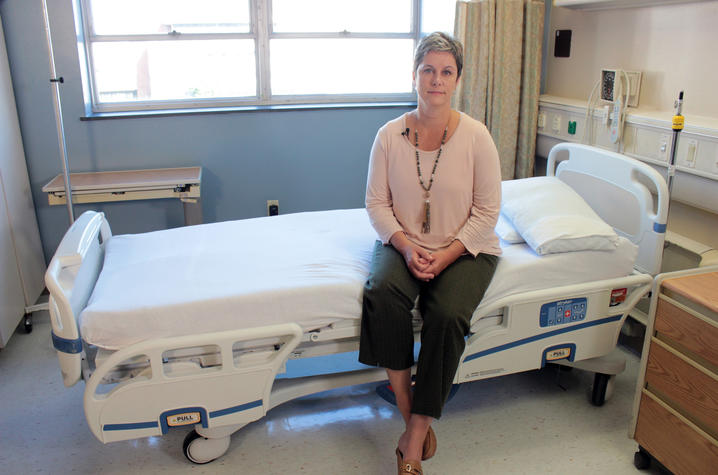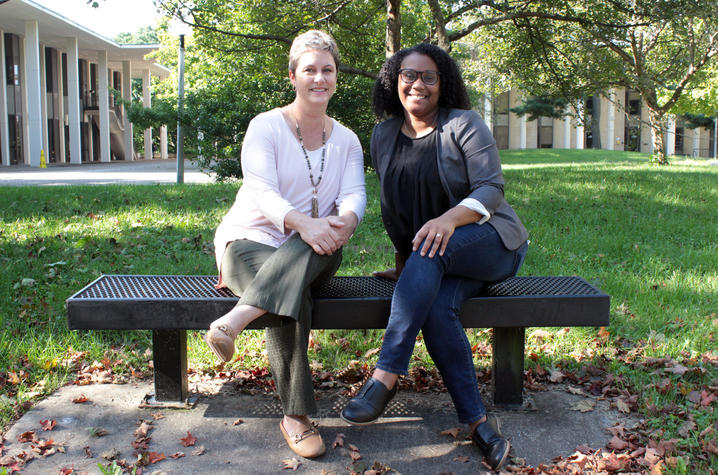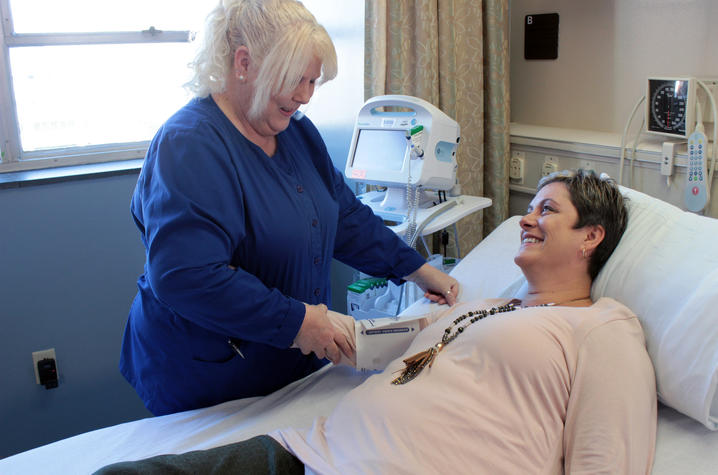Researcher Enrolls in Study to Learn about Participant Experience But Gets an Unexpected Diagnosis
LEXINGTON, Ky. (June 13, 2019) – Aime Kunes decided to participate in a health research study because she wanted to learn more about the process of research. With a Ph.D. in psychology and a background in neurofeedback, she was planning to conduct her own research and felt it was important to understand the experience of a participant.
By chance she received a well-timed email, part of a targeted outreach to the LGBTQ community by the University of Kentucky's Wellness, Health & You (WHY) program with information about a pre-diabetes study that needed volunteers.
The study was investigating a drug that might help prevent diabetes by stimulating the body’s brown fat reserves. Kunes got in touch with the research team and learned she was eligible to participate.
“I went into the study really trying to observe the research process," she said. "I was really interested in having the experience from front to finish.”
Then, following a routine PET/CT scan in the study, Kunes learned something entirely unexpected: she had thyroid cancer.
“I was absolutely surprised. I was having fun experiencing the tests. I was really grateful to have the opportunity to participate in that study—those tests are so expensive. I just thought it was really cool to experience a PET scan and CT, but then I got the call from Dr. Kern.”
Dr. Philip A. Kern, principal investigator of the study and director of the UK Center for Clinical and Translational Science, had anticipated some incidental findings in the course of the study based on the sheer odds of running PET/CT scans — which are very sensitive and typically used to monitor for recurrence of cancer — on 60 middle-aged participants. A few other participants had thyroid abnormalities on their scans that turned out to be a benign condition called thyroiditis, so Kern expected the same with Kunes. But the follow-up ultrasound revealed further abnormalities in her thyroid, and a biopsy confirmed that she had early stage thyroid cancer.
“It was small. Even with good hands you probably couldn’t feel it. It was just picked up incidentally,” Kern said.
“My first thought was gratitude,” Kunes said. “What if I didn’t participate in that study? It just felt prophecy to me, to have interest in participating in a study and then to get the email — how everything played out is very interesting to me.”
She then underwent a curative surgery at UK Chandler Hospital, and remains cancer-free.
“Dr. Kern referred me to a wonderful surgeon at UK to continue my care, Dr. [Reese] Randall, and he took excellent care of me before and after the surgery. He’s been following my care ever since,” she said.
For Kunes, the experience bolstered not only her enthusiasm for participating in research but also cemented her understanding that researchers need to go make an effort to reach out to populations, like the LGBTQ community, who have long been overlooked by medical research.
“Absolutely people should participate in research, whether they get an invitation or they go seeking opportunities. Regardless of the size of the study there’s a tremendous amount of value in giving back. And as a researcher, as a psychologist, I owe it do that.”
She added that from the researcher perspective, “beyond just a desire to serve underserved folks, we need to be very intentional with our outreach and networking efforts. Underserved populations want and need services, but they need to be able to access them in a way that is opening and affirming.”
To that end, Kunes recently promoted research participation in a video about the Wellness, Health & You (WHY) project, which aims to bridge the gap between underrepresented minorities and health researchers.
There are many opportunities to get involved and participate in research. Visit UKClinicalResearch.com to browse current opportunities at UK and also join Wellness, Health & You (WHY).
This research was supported by R01 DK 112282 and a Clinical and Translational Science Award, UL1 TR 001998, from the National Center for Advancing Translational Science.







